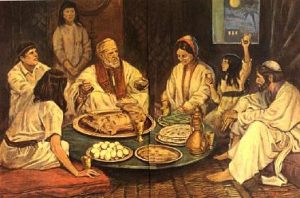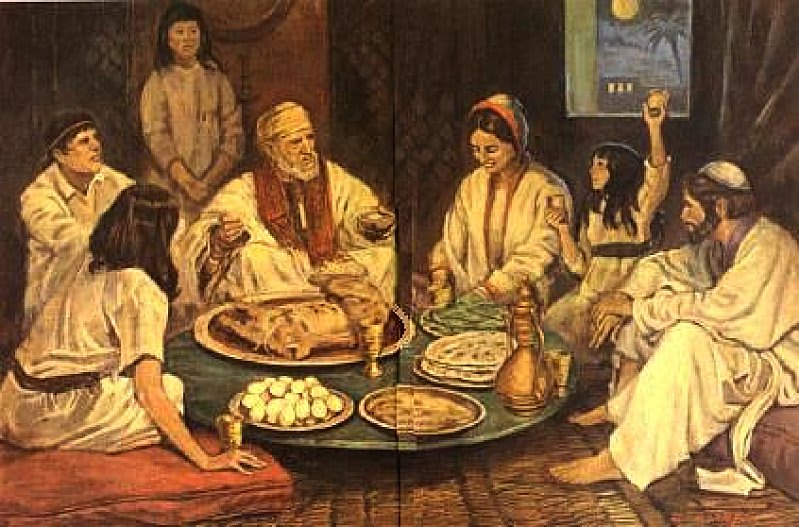This article originally appeared on March 21, 2013 at finkorswim.com.

For most Jews, Passover is a pilgrimage. Instead of the pilgrimage of our forefathers to the Temple Mount, today we make a pilgrimage to our parents, grandparents, children, grandchildren, nephews, nieces, cousins, aunts, and uncles or some combination thereof. The holiday of Pesach as we call it, or the Holiday of Matzos as it is called in the Torah, or the Time of our Freedom and Holiday of the Spring as the day is known to the rabbis of the Talmud, could be said to have been supplanted by a new name: the Holiday of Family.
They say that one of the secrets of happy couples is that they share wonderful memories together. The combination of the experience and the positive memory associated with the common experience creates an environment where a good relationship can flourish.
I advise couples to actively try to create good memories. Do things together that are fun and exciting. Plan activities that will create those memories. And reminisce. Always look fondly upon those moments, cherish the memories, and plan more memory making merriment.
This may sound a bit like cheating. It’s almost like artificially manufacturing a relationship. But it’s not cheating. It’s playing smart. No relationship can survive on the fumes of romance or even true love with no help. You need to stoke the flames, you need to create a common language, you need to have good memories.
Religion is a lot like a relationship.
One of the most effective ways of transmitting a love and excitement about Judaism is by creating good Jewish memories and associations. Nostalgia plays a large role in our lives. A song takes us back to our teenage angst, a smell takes us back to a vacation, an old friend takes us back to simpler times. When we are down, there’s nothing quite like mom’s cooking to make everything all good again.
While religion must grow into something more sophisticated and mature than simple nostalgia, leveraging the natural feelings of nostalgia is a great way to augment one’s spirituality. After all, G-d gave us nostalgia. Let us use it.
The Seder (ceremonial Passover dinner) is the perfect time to craft those memories. The smells, tastes, customs, and discussions of the Seder will linger decades after we sing Chad Gadya at the conclusion of our Seder. The content of the Haggadah (text recited at the Seder) and what we are able to learn and find inspirational during the Seder is so important, but the flavor and tone of our Seder will make a lasting impact as well. Who joins our Seder will make a difference too. When we associate our family and good feelings with the Seder, we have a formula that can create memories that will last a lifetime.
There’s no shame in trying to create those memories. In fact, I encourage it. Make the Seder special. Make the Seder consistent. Make the Seder a time for family. Make your own family traditions.
The story of the Exodus is as much a story of salvation as it is a story of becoming a family. We experienced an incredible exodus together and it bonded us together as a family. We relive those memories every year. This is one of the great ideas in the Haggadah. But we must also create our own new memories.
A New York Times article published last week drives home a similar message. The article proposes that “[t]he single most important thing you can do for your family may be the simplest of all: develop a strong family narrative.”
This is a clumsy way of saying that families need to know their story. Families that are happiest know answers to questions like these: Do you know where your grandparents grew up? Do you know where your mom and dad went to high school? Do you know where your parents met? Do you know an illness or something really terrible that happened in your family? Do you know the story of your birth?
Our stories and our collective memories create strong families. Strong families foster confident, well-adjusted, happy children. This is wisdom found in a New York Times article in 2013. It is also found in our ancient Seder traditions. Even before the formal Seder was established, the Torah itself tells us to tell our children our story. We are charged with mastering our national narrative. So many of our rituals come back to the same point – “because God took us out of Egypt.” This is our way of reminded ourselves of our family story. It is so important that the Torah mentions it dozens of times.
One of the secrets of Judaism is our storytelling. We read the stories in the Bible every week. Our Talmud is stock full of stories of our sages. Stories are one of the languages of Judaism. The Seder is a time to tell the story of our forefathers, but is also the time to write our own, new stories.
This year, and every year, let us use the Holiday of Family, Pesach with its Seder, to retell our national story and the birth of our nation, but also to write new chapters in our own family stories and create positive memories and associations with our religious experiences. In this way we will do our part in passing on our beautiful tradition to the future of Judaism.
Does your Seder look like what the rabbis really had in mind? Probably not. A bold suggestion for your Seder this year.
Rabbi Eliyahu Fink, J.D., is the rabbi at the famous Pacific Jewish Center | The Shul on the Beach in Venice, CA. Connect with Rabbi Fink through Facebook, Twitter or email.
The words of this author reflect his/her own opinions and do not necessarily represent the official position of the Orthodox Union.

